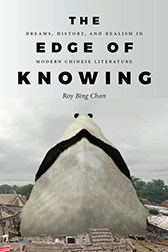
The Edge of Knowing: An Interview
Roy Bing Chan’s new book explores twentieth-century Chinese literature that emphasizes sleeping and dreaming as a way to reckon with the trauma of modernity, from the early May Fourth period through the end of the Cultural Revolution in the late 1970s. Informed by theoretical engagements with Russian Formalism, semiotics, psychoanalysis, Marxism, affect studies, and more, The Edge of Knowing: Dreams, History, and Realism in Modern Chinese … Continue reading The Edge of Knowing: An Interview








